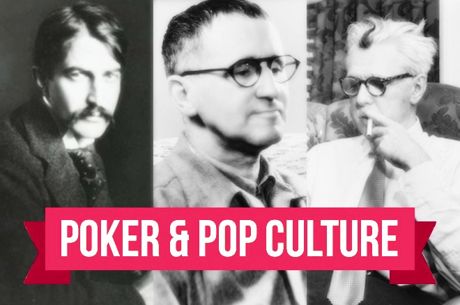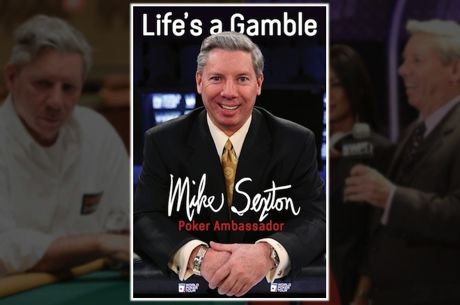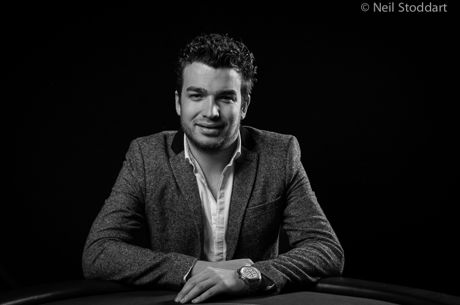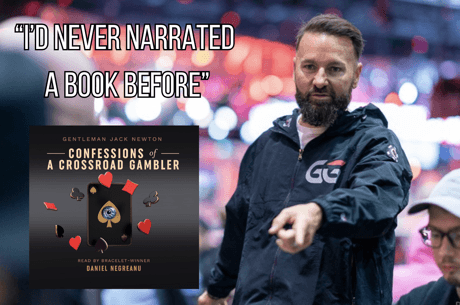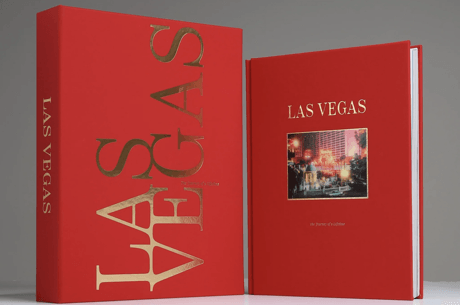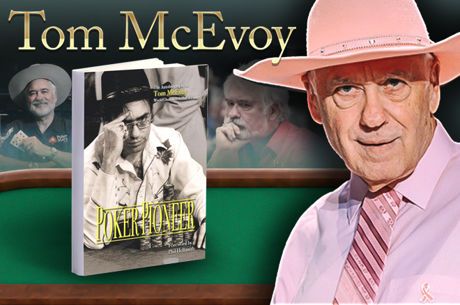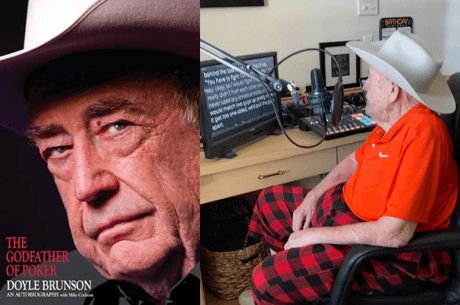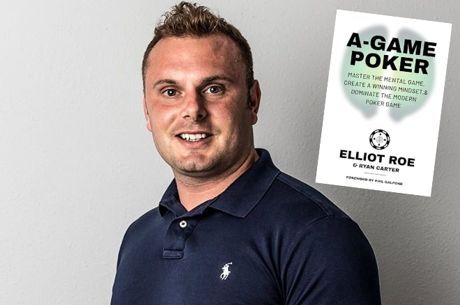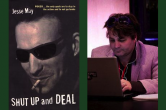Rick Bennet on "The Baltimore Truth," Sequel to "King of a Small World"
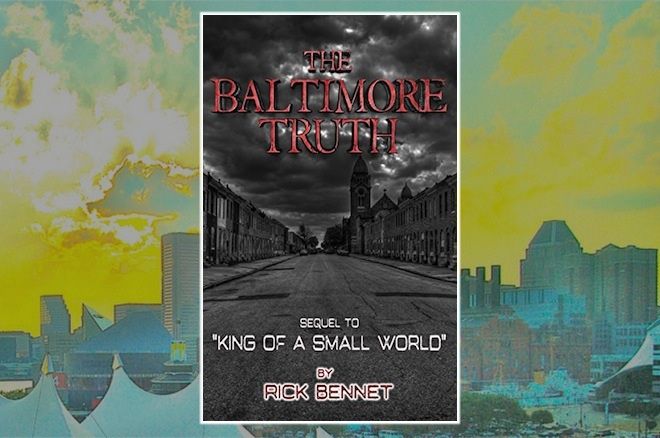
Many readers consider Rick Bennet's 1995 novel King of a Small World to be the best of its kind — a poker-themed novel that offers an authentic, gritty portrait of "the live grind."
The book follows Joey "Pinocchio" Moore, a young rounder who knows Maryland's underground poker scene and the skills necessary to succeed there. "I never worry about losing money gambling," Joey says. "I always worry about losing it in life. Having it fall out of my pocket. Having it stolen. Something. It's a compulsion. The more I win, the more I feel it."
Pinocchio Joe returns in The Baltimore Truth, a newly released crime noir sequel to King of a Small World. PokerNews recently caught up with Bennet to discuss his new novel and his thoughts on surviving in the poker world.
PokerNews: You finished King of a Small World in 1995. Why did you wait twenty years to publish its sequel?
Rick Bennet: I wrote The Baltimore Truth about five years after King of a Small World was published, which was also after my second novel, The Lost Brother, was published. The Baltimore Truth initially garnered some good interest from publishers, but all had a problem with it, structurally, in that early in that version of the novel, the character Cool Suerte was killed, instead of, as now, surviving his shooting. All the potential publishers hated that, yet I didn't see how to fix it. His death seemed natural, in my storyteller's view. Because I couldn't then see how to change the story to their liking, their interest dissipated.
At some point years later, I don't remember when — I think after a random talk with my agent about how The Baltimore Truth was one of the few books she really regretted not getting published (they may say that to all their writers, but I believed her) — I thought of how to fix the "Cool dies" problem in a natural way, and then, sometime later, went back through the book and made that major change, and liked it. By then it was too late to reapproach publishers (it just isn't done, apparently, not if you're a small fry, like me). The book had been forgotten, I had been, and poker itself was seen as a busted boom, so that was that.
My sister, Melanie, read it, liked it, and suggested I just e-pub. I didn't much want to do that, it seemed pointless, pathetic even, self-publishing being a pejorative to my generation. But she asked me to just do it, to just put it in the world. Because she was dying of cancer, I agreed (she has since passed). No harm in it, no reason not to, and in fact King of a Small World is popular among poker players, so if anyone enjoys the sequel, good.
It isn't very sequel-ish, I don't think, by the way. The same world, but except for Joey Moore, different characters. The Baltimore Truth is more about the criminal underworld. It was written before the internet was much functional, but post-writing research reveals that most of what I'd heard was true.
There's not a lot of poker-playing in The Baltimore Truth. In what ways is the book "about" poker?
As you said, there isn't much poker in it. Truth is that only poker players, and good ones at that, can appreciate the subtle meanings of the game's play, and writing for only that small population isn't going to work, and would be a different book, anyway.
The real drama isn't in whether a spade comes on the river or a diamond does, but in the lives of the people in the game. The play of the hand isn't the story; the people in and around the game are the story. So The Baltimore Truth isn't about poker as a game, but as a life. King of a Small World was that, too.
Do you think that players can improve their poker game by reading King of a Small World or The Baltimore Truth?
No, not their game, but maybe their composure. One of the best and first pieces of advice I got on poker is that "Beating the game is one thing, kid; beating the life, that's an altogether different play."
One of the best and first pieces of advice I got on poker is that "Beating the game is one thing, kid; beating the life, that's an altogether different play."
I haven't seen many do it. I'm one of the very few poker players I know who's had a nice, middle-class life with wife and kids and ball-games and PTA meetings and all that normal stuff, which has all been precious to me. I got divorced a few years back and my boys are grown, but still, for a long time I got to have that rare combination of a poker player's freedom with the best kind of obligation: that of raising children.
The many guys who play cards for a living without having family, without really having whole lives, to me — and I know I'm being harshly judgmental here — are missing out. Playing poker as a father meant I was never the dad missing his kid's games for business, I was the dad coaching his kid's games because I could work when I wanted.
I would never advise anyone to take up poker for a living, but to those who choose to, I'd say: live a whole life. Be connected to the world.
To what extent is Pinocchio Joe's story a glimpse into the life of Rick Bennet? What are you up to these days?
King of a Small World wasn't autobiographical. [Joe] was definitely an imagined character, but one who lived in a world I well knew from my days of running after-hours home games and charity casinos in Southern Maryland. The Baltimore Truth is an extension of that.
I didn't operate in Baltimore, but I played in home games there (this was all way before Maryland Live and such), and met people, talked to them — all kinds of people, all kinds of backgrounds — and again just worked to get the details of the lives right, then created characters to live in that world. It was always important to me as a writer to get the life right. Fiction, for me, should allow a reader to live in a different world, to live a different life, and learn from it. But if the fictional world isn't authentically created, the learning isn't real — it might actually be misleading. I refused to allow that to happen.
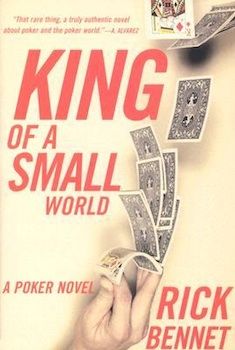
If you read my books, if I've written them at all well, they should feel right in the little things. If I made any technical mistakes in The Baltimore Truth it would be in the detective work, because I've never been on the right side of law enforcement. But of the gambling aspects, the connections, the idea (big in the novel) of the danger of people just plain being wrong in their accusations, there's no reason for error in any significant way.
The idea of the price paid for being wrong, by the way, is the key theme in The Baltimore Truth. I almost called the book "Wrong." It's about the great danger of being certain you're right about something very important, and then having to deal with the fact that you were wrong, tragically so.
I once spent a week carrying a gun with me. That was a horrible week, and all because a guy had listened to liars and thought I'd been stealing from him, and had said he'd kill me, and had been in prison for murder before, and thus his threat had to be taken seriously. I was lucky in that eventually he figured out that the people who'd pointed the finger at me had actually been the thieves, but that was a damn scary week. And when we talked about it later he said I was lucky because he'd learned, somewhere along the way, in his hard-ass life in East Baltimore, the simple truth that he'd been wrong before, really badly, horribly wrong before, and wanted to at least not to be that again.
After that I got out of Maryland and moved to North County San Diego, partly because it was the most un-Baltimore, un-Prince George's County place I could find. I just played cards for a long time, raising my kids, then switched, slowly, partly, to sports betting. I'm retiring from that now, and just living the Buddhist poker life in Vegas — not risking my nest egg, just playing small stakes because I don't want to think about poker away from the table.
Poker, and its people, can actually be fun, if you let it, if the money doesn't make you happy or sad. Sometimes old friends ask me what it's like playing $1/$3 and I say, "Peaceful."
The Baltimore Truth by Rick Bennet is now available at Amazon.
Ben Saxton is a teacher and a writer from upstate New York who has played small-stakes poker, both live and online, since the early 2000s. Ben lives in New Orleans and covers poker on the Gulf Coast.
Image (background): "from baltimore harbor east" (adapted), Tyler Merber, CC BY 2.0.

